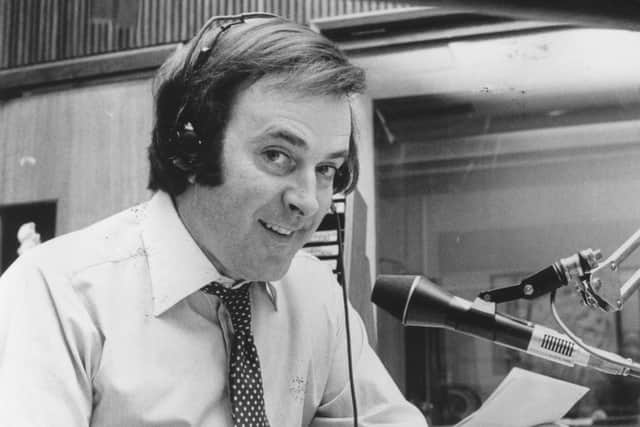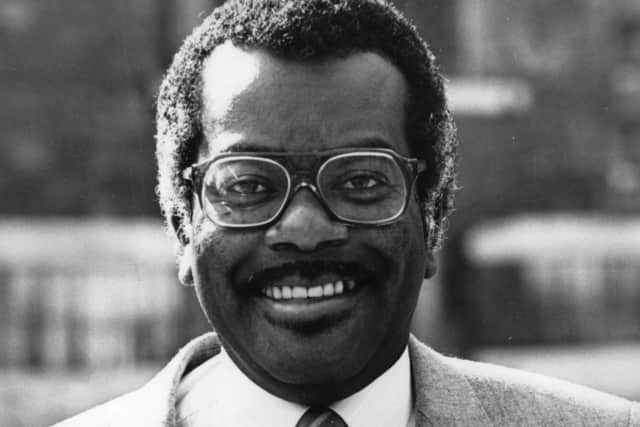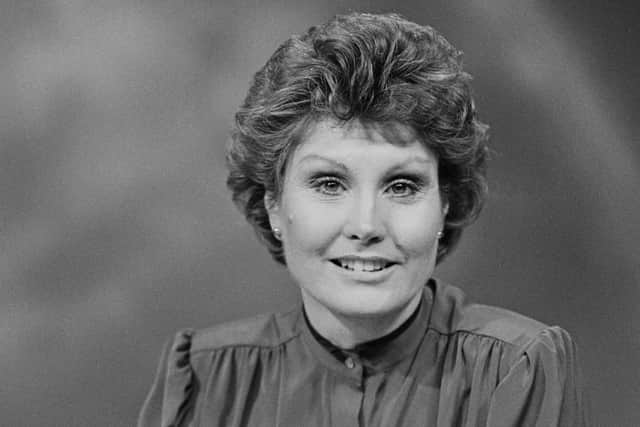Queen's English fading away as news broadcasters favour a relaxed slang approach
and live on Freeview channel 276
Is Memory Lane the place to discuss the gradual shredding of the English language by broadcasters?Maybe it is - because many of us can remember when they all spoke the Queen’s English.
News people like Sir Trevor McDonald, Angela Rippon and Richard Baker, and presenters like Michael Aspell, Terry Wogan and Gloria Hunniford set the example. They spoke with authority.
Advertisement
Hide AdAdvertisement
Hide AdIn the not-so-old days it would have been unusual for a broadcaster to use street slang, when conducting an interview or presenting a TV programme.


You know the words. Take a pen and pad and write an “X” every time you hear a broadcaster say “gonna” or “gonnu” instead of “going to.” Likewise “wanna” instead of “want to.” You’ll be surprised
Then there is the frequent use of “ter” instead of “to.” And the omission of the letter “t” in the middle of some words.
I’m not talking about personalities who are having a light-hearted conversation. I’m talking about front-rank news and current affairs people on national television - particularly the breakfast shows.
Advertisement
Hide AdAdvertisement
Hide AdHow often have we heard broadcasters use the word “gonna” in interviews and politicians replying in the same vein?


Their language is little different to the dialogue we hear in TV dramas, where it is part of a characterisation.
Are some broadcasters unaware of what they are doing or is it now an approved policy to use slang words in order to be chatty with viewers? - “We’re really just like you, folks.”
I would bet that language schools in foreign parts are particular about teaching what we know as “the Queen’s English.”
Advertisement
Hide AdAdvertisement
Hide AdBrowsing the internet I came across a site that explained words like “gonna” and “wanna” are informal contractions; short forms of other words that people use when speaking casually.


“They are not exactly slang but they are a little like slang,” says the site, hedging their bets.
“Remember that these are informal contractions. That means we do not use them in ‘correct’ speech and we almost never use them in writing.”
There we have it. The print media upholds standards!
We would be surprised to see a newspaper or magazine article littered with “gonna” and “wanna” and other contractions.
Advertisement
Hide AdAdvertisement
Hide AdThere is a theory that when speaking under stress, a person is more likely to clip words.
I can be judgmental because I did several years as a presenter for a major charity and sometimes the answer to a question didn’t come fast enough.
You quickly learn when to use the dramatic pause and slight turn of the head, in which time you get back on track.
Whatever you do, you aspiring speakers, don’t fall back on “y’know” or utter those non-words “err” or “erm.”
Advertisement
Hide AdAdvertisement
Hide AdAnd, while I’m in critical mode, why do many broadcasters and public figures begin sentences with “So . . .”
It’s not wrong but the constant repetition is annoying and reveals the limitations of the speaker.
What do you think about how the news is broadcast? Should they take a more relaxed approach or stick to the traditions of Queen’s English. Email [email protected]
Comment Guidelines
National World encourages reader discussion on our stories. User feedback, insights and back-and-forth exchanges add a rich layer of context to reporting. Please review our Community Guidelines before commenting.